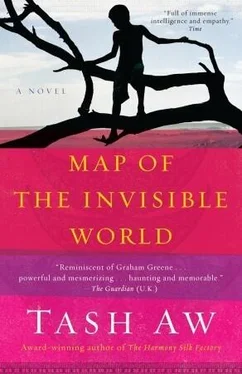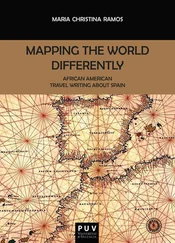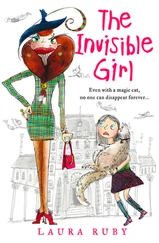Tash Aw - Map of the Invisible World
Здесь есть возможность читать онлайн «Tash Aw - Map of the Invisible World» — ознакомительный отрывок электронной книги совершенно бесплатно, а после прочтения отрывка купить полную версию. В некоторых случаях можно слушать аудио, скачать через торрент в формате fb2 и присутствует краткое содержание. Год выпуска: 2010, Издательство: Spiegel & Grau, Жанр: Современная проза, на английском языке. Описание произведения, (предисловие) а так же отзывы посетителей доступны на портале библиотеки ЛибКат.
- Название:Map of the Invisible World
- Автор:
- Издательство:Spiegel & Grau
- Жанр:
- Год:2010
- ISBN:нет данных
- Рейтинг книги:4 / 5. Голосов: 1
-
Избранное:Добавить в избранное
- Отзывы:
-
Ваша оценка:
- 80
- 1
- 2
- 3
- 4
- 5
Map of the Invisible World: краткое содержание, описание и аннотация
Предлагаем к чтению аннотацию, описание, краткое содержание или предисловие (зависит от того, что написал сам автор книги «Map of the Invisible World»). Если вы не нашли необходимую информацию о книге — напишите в комментариях, мы постараемся отыскать её.
comes an enthralling novel that evokes an exotic yet turbulent place and time—1960s Indonesia during President Sukarno’s drive to purge the country of its colonial past. A page-turning story,
follows the journeys of two brothers and an American woman who are indelibly marked by the past — and swept up in the tides of history.
Map of the Invisible World — читать онлайн ознакомительный отрывок
Ниже представлен текст книги, разбитый по страницам. Система сохранения места последней прочитанной страницы, позволяет с удобством читать онлайн бесплатно книгу «Map of the Invisible World», без необходимости каждый раз заново искать на чём Вы остановились. Поставьте закладку, и сможете в любой момент перейти на страницу, на которой закончили чтение.
Интервал:
Закладка:
If you what? Farah touched his arm lightly.
If I went away and did not tell anyone, it would be okay, they would have no choice, they would have to take Adam. I remember going to the window and listening for the sounds of the sea. It wasn’t far away but we could never hear it, never. So I, I …
Breathe slowly, Johan, slow down. Farah stroked his hand. Please.
Okay. Sorry. Sorry. I waited for dawn, and when it came I began to feel better, and I thought maybe there was nothing to worry about, I was being crazy, getting worked up over nothing. When Mummy and Daddy came I felt good again because they were the nicest people I’d ever seen. It was early in the morning, and my brother was still asleep. Everyone was still asleep. Mummy came and took me by the hand and said, I want to talk to you, we’re just going to have a quick word, okay? I said, We’re both going, aren’t we? She nodded, I swear she nodded, and I was happy again. She had her sunglasses on again and she said, Come along, hurry. Hurry. She walked very quickly. I thought she was going to show me something in the car, but when we got into the car and the doors closed I knew what was happening. The Brothers and the nurse were waving to us, and the car started to move away. A kind of sickness welled up inside me, a terror. I couldn’t move. I wanted to scream and shout for my brother and say, stop, stop, but my body would not move, and I could make no sound. I just knelt on the seat watching the orphanage recede into the distance. There was a cloud of dust that made everything seem yellow, the whole landscape, the trees, everything. And then …
Shh, Johan, oh Johan, please calm down. Farah touched his face, his wet skin.
And then I saw, I saw my brother. He was running after the car. He was a long way away, but through the dust I saw his plump little legs stumbling in the dirt, until finally he gave up and slowed to a walk, and I heard Daddy say, Don’t look, don’t look. He said it in a quiet voice. I didn’t know if he was talking to Mummy or me. I hear this sometimes in my dreams, when I am all alone. Don’t look . And that’s when I wish I hadn’t looked. It’s when I wish I had dreamed it all.
You’re shaking, Johan. You’re hot.
The storm was not abating, but they both wished it would not end, that it would carry on through the night. He lowered his head and rested it on her collarbone, in that safe place between her chin and her shoulder where he could shelter and listen to the storm. Johan said, Sometimes when it comes back to me I get so angry because I think to myself, I should have run away that night. Mummy would have taken Adam instead of me and he would have this life, my life. But I didn’t, Farah, I didn’t have the courage.
She stroked his wet hair and felt his breaths, quick and hot against the chill of her skin.
You’ve never told me your brother’s name until today, she said at last.
Adam. His name was Adam.
Adam and Johan. That’s nice.
It’s been so long since I heard anyone say his name. Johan laughed, and Farah felt his breath on her neck again. She was not so cold now.
I wish you weren’t going away, she said. I don’t want you to go away.
I have to go away. There’s nothing else to do. I’m sorry. He shook his head, and she did not know what this meant.
Lightning. The water dripping from the roof turned into a trail of crystals, just for a moment, before becoming invisible once more in the darkness. And in the brief, pale violet light Johan could see Farah’s face, and he could see that her eyes were red and glassy with tears, but he could also see that she was smiling.
We should go now, Johan, I’m sleepy.
Now? But it’s still raining.
We’re already wet, aren’t we?
He sighed and stood up. Maybe you’re the one who’s really crazy.
25
A dam lifts his head and blinks. This is what he sees: light, falling in thin shafts onto the floor. There is a rug. The rug is red. The light makes funny shapes on the red rug, like spots of bright blood on a darkened floor. Why is the rest of the floor so dark? The room is gloomy. This is because the shutters have been drawn half-shut. Adam can see that now. There are people in the room, people he has never seen before. A man and a woman. The man has a big, shiny watch. Adam can hear it ticking, even though the people from the orphanage are talking; they are talking about Adam.
Yes, they are at the orphanage. Adam knows this place.
The woman says, Is he okay? Yes, he’s fine, he’s fine. The light makes him funny, don’t open the shutters. Breathe, Adam. Slowly. You’re okay.
There is one voice that Adam can hear over the others, quite clearly.
26
O ne of the most famous Indonesian paintings of all time might, at first glance, easily be mistaken for a fairly conventional nineteenth-century European work of art. It depicts a large group of people clustered around the steps of a colonnaded veranda; in the distance there is a volcanic mountain, suggestive of a tropical landscape. Most of the figures are dressed in Javanese costume; some are squatting on the ground, forlorn, others hold their heads in their hands, weeping, one presumes. But most of them are looking at a proud figure surrounded by Dutch army officers. This person is Prince Diponegoro, the Javanese aristocrat who led the resistance movement against the Dutch in the 1830s. Executed with great assurance and in a style that is unmistakably Western, it is easy to see this painting as yet another scene from the annals of European history: the conquest of a foreign land, the easy subjugation of the natives by the sophisticated, upright officers of a Western power. But look again. There is something unusual about these Westerners. Are their heads too big for their bodies? Almost certainly they are. And now that you’ve noticed this, don’t they look gawky and ill at ease? This isn’t due to a lack of painterly craft, because the Javanese people are beautifully rendered, full of humanity, grace, and pride. They do not confront the beholder as the big-headed Dutch characters do, but form part of the landscape; they are dressed not in rags but in sarongs and headdresses of batik. They may be defeated in this battle, but it is they, not the Dutch, who remain human.
The artist, Bill Schneider explained earnestly, was a Javanese nobleman named Raden Saleh, who traveled to Holland to study under Kruseman and Schelfhout, excelling early in his career at landscapes and portraiture, which brought great success and made him a favorite of Ernst I, Grand Duke of Saxe-Coburg-Gotha, in whose home he lived for five years, slipping quite easily, it seems, into aristocratic life in Dresden. All this time, however, Raden Saleh nursed a passion for painting wild animals, in particular, lions. He had once seen some at Henri Martin’s circus in The Hague and was seized by the urge to depict their untamable instincts. He identified with their pride and fiery temperament, and began producing monumental works depicting these wild yet noble beasts attacking snakes, or horses, or Dutch army officers out hunting (never mind that there are no lions in Java). Now back in Yogyakarta, his work took on simple yet striking anti-Western overtones, culminating in the masterful Capture of Prince Diponegoro , which hangs in the royal palace in Amsterdam.
“I’m thinking,” said Bill, “I’m thinking that it’ll be a peace offering. A kind of sweetener to make the president more amenable to … well, to things in general. The idea is simple: We arrange for the return of this priceless, hugely symbolic nationalistic work of art to Indonesia, and in return he recognizes that we’re good friends of his, not enemies. I’ve been working for weeks now, but I’m not making much headway. The Dutch are not in a giving mood. We’ve had endless negotiations— endless— but they won’t give up these paintings easily.”
Читать дальшеИнтервал:
Закладка:
Похожие книги на «Map of the Invisible World»
Представляем Вашему вниманию похожие книги на «Map of the Invisible World» списком для выбора. Мы отобрали схожую по названию и смыслу литературу в надежде предоставить читателям больше вариантов отыскать новые, интересные, ещё непрочитанные произведения.
Обсуждение, отзывы о книге «Map of the Invisible World» и просто собственные мнения читателей. Оставьте ваши комментарии, напишите, что Вы думаете о произведении, его смысле или главных героях. Укажите что конкретно понравилось, а что нет, и почему Вы так считаете.












